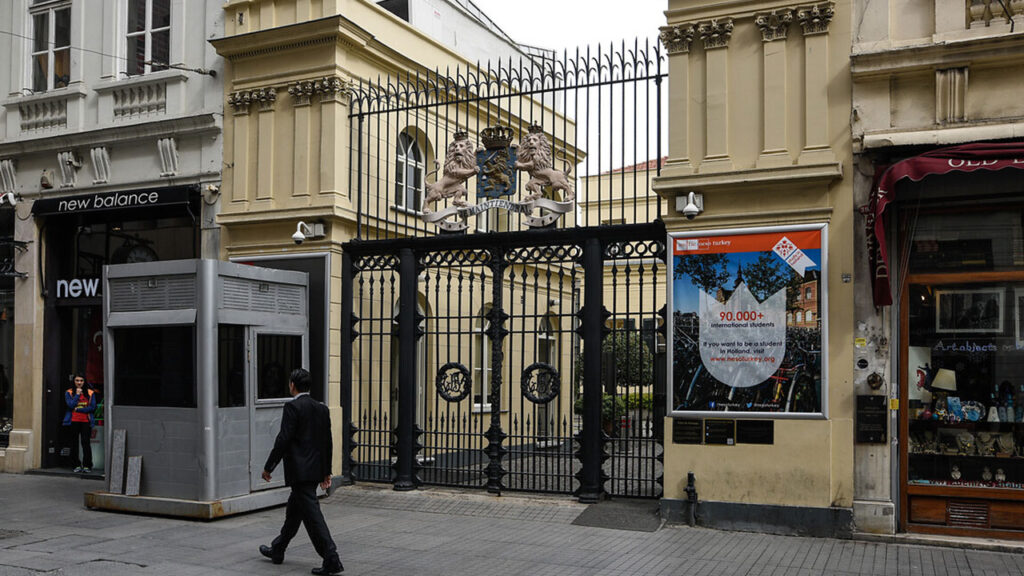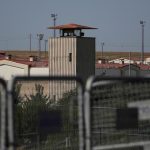The Dutch Consulate General in İstanbul has been temporarily closed to the public due to the increased threat of an attack on Western targets, according to reports in the Turkish and Dutch media.
A spokesperson for the Dutch Ministry of Foreign Affairs could not say how long people will be unable to enter the Dutch consulate in İstanbul.
A copy of the Quran was torn up by the leader of the right-wing, anti-Islamist group Pegida at a small demonstration in The Hague on Jan. 22. The Dutch ambassador to Turkey was summoned by the Turkish foreign ministry, which demanded that the Netherlands put a stop to such “provocative actions.”
The ministry said it condemned “in the strongest possible terms the vile attack of an anti-Islamic person” in the Dutch city.
“The recent demonstrations in Sweden, Denmark and the Netherlands, where a Quran was burned or torn up … may arouse anti-Western feelings and lead to demonstrations and protests. There is also the increased threat of an attack against Western targets, diplomatic representations and places of worship, especially in Istanbul,” states the latest travel advice from Dutch Foreign Affairs.
Earlier this month, a right-wing extremist in Sweden burned a Quran in front of the Turkish embassy, prompting an angry reaction from Turkey and causing Turkish President Recep Tayyip Erdoğan to announce that Sweden should not expect Turkey to support its request to join NATO.
The Quran burning was staged by Rasmus Paludan from the far-right Stram Kurs (Hard Line) party on Jan. 21.
Several protests have taken place in Turkey since the incident.
Over the weekend, the Dutch foreign ministry warned its citizens in Turkey to avoid demonstrations and other large gatherings because they can turn violent. The ministry has had no indication that there is a threat to individual Dutch travelers.
Over the past several days the United States and major European countries have advised their citizens against attending mass events and to avoid tourist hotspots in Turkey due to growing anger in the country due to anti-Islamic protests in Europe.
The anti-Islam protests have stirred anger in Turkey, an officially secular but mostly Muslim country facing a crucial election in May.
Erdoğan has seized on the protests to energize his base of nationalist voters in the election campaign.
Source: Turkish Minute



